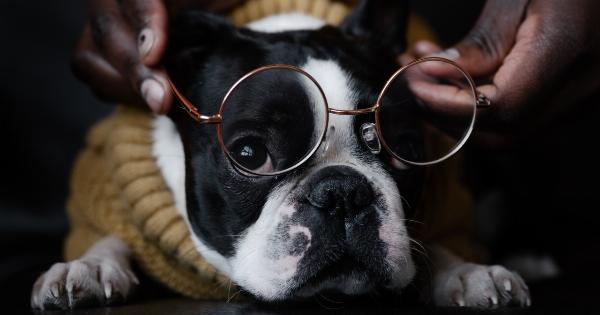The Boston Terrier is a small, intelligent, and lovable breed that has captured the hearts of dog lovers around the world.
Known for their distinctive tuxedo-like coat and friendly disposition, these dogs are incredibly charming and make wonderful companions. In this article, we will delve into the history, characteristics, training, and care of Boston Terriers, shedding light on why they are such a popular and beloved breed.
History
The Boston Terrier, often referred to as the “American Gentleman,” originated in the late 19th century in Boston, Massachusetts.
The breed is a result of crossbreeding between the English Bulldog and the English White Terrier, which is now extinct. The aim was to create a small, strong, and agile breed suitable for dog fighting. However, as attitudes towards animal cruelty changed, the breed’s purpose shifted to companionship, and they quickly gained popularity as delightful family pets.
Characteristics
Boston Terriers possess a unique set of physical and personality traits that set them apart from other breeds. On average, they stand between 15 and 17 inches tall and weigh around 10 to 25 pounds.
Their most distinguishing feature is their muscular yet compact body, complemented by a square-shaped head and expressive round eyes.
One of the most endearing characteristics of Boston Terriers is their charming personality. They are known for their friendly and affectionate nature, making them excellent companions for individuals and families alike.
Their gentle and patient nature makes them great with children, and they tend to get along well with other pets.
Furthermore, Boston Terriers are intelligent and eager to please, which makes them relatively easy to train. They are quick learners and respond well to positive reinforcement methods.
Their intelligence also allows them to excel in various dog sports and activities, such as obedience, agility, and even tricks.
Training
When it comes to training Boston Terriers, consistency and positive reinforcement are key. These intelligent dogs thrive on praise and treats, so using reward-based training methods will yield the best results.
The training process should start early to shape their behavior and establish a strong bond between the dog and its owner.
Basic obedience commands, such as sit, stay, and come, should be taught to ensure the dog’s safety and well-being. Additionally, Boston Terriers are prone to stubbornness, so patience and persistence are crucial during training sessions.
Always remember to keep the sessions engaging and fun, as these dogs are known to have a good sense of humor.
Socialization is another vital aspect of training for Boston Terriers. Exposing them to various people, animals, and environments from a young age will help them develop into well-rounded adult dogs.
Positive experiences during socialization will ensure they remain friendly and confident in different situations throughout their lives.
Care & Grooming
Boston Terriers have a short, smooth coat that requires minimal grooming. Regular brushing with a soft-bristle brush can help remove loose fur and keep their coat looking shiny.
Bathing should be done when necessary, using a mild dog shampoo to avoid skin irritation.
Due to their shortened snout, Boston Terriers are prone to overheating and respiratory issues. It is important to refrain from exercising them excessively in hot weather and to provide them with plenty of water and shade.
Additionally, their prominent eyes are prone to injuries and infections, so regular eye cleaning is recommended.
Furthermore, dental care is crucial for Boston Terriers, as they are prone to dental issues like gum disease and tooth loss. Regular brushing with a dog-friendly toothpaste and dental exams by a veterinarian can help maintain their oral health.
Health Concerns
Overall, Boston Terriers are generally healthy dogs with a lifespan ranging from 11 to 13 years. However, they are susceptible to certain health issues, which potential owners should be aware of. Some common health concerns specific to the breed include:.
Brachycephalic Syndrome: This syndrome refers to a set of respiratory issues caused by the breed’s short muzzle and flat face. Boston Terriers may experience difficulty breathing, snoring, and heat intolerance.
Patellar Luxation: This condition involves the dislocation of the kneecap, causing lameness and discomfort. Regular check-ups with a veterinarian can help diagnose and manage this condition.
Eye Problems: Boston Terriers are prone to various eye conditions, including cataracts, cherry eye, and corneal ulcers. Regular eye examinations and proper eye care are essential to maintain their ocular health.
Allergies: Like many other breeds, Boston Terriers can suffer from allergies that may manifest as skin irritation or respiratory issues.
Identifying and avoiding allergens, along with appropriate veterinary care, can help manage these allergies.
Obesity: Due to their love for food, Boston Terriers can easily become overweight if not given a balanced diet and regular exercise. Maintaining a healthy weight is crucial to prevent obesity-related health problems.
Conclusion
The Boston Terrier is a charming and clever breed that brings joy and companionship to countless households. With their friendly nature, adaptability, and intelligence, they make excellent family pets for individuals and families of all ages.
Understanding their history, characteristics, training needs, and health concerns is crucial for providing the best care and ensuring a happy and fulfilling life for these adorable “American Gentlemen.”.































